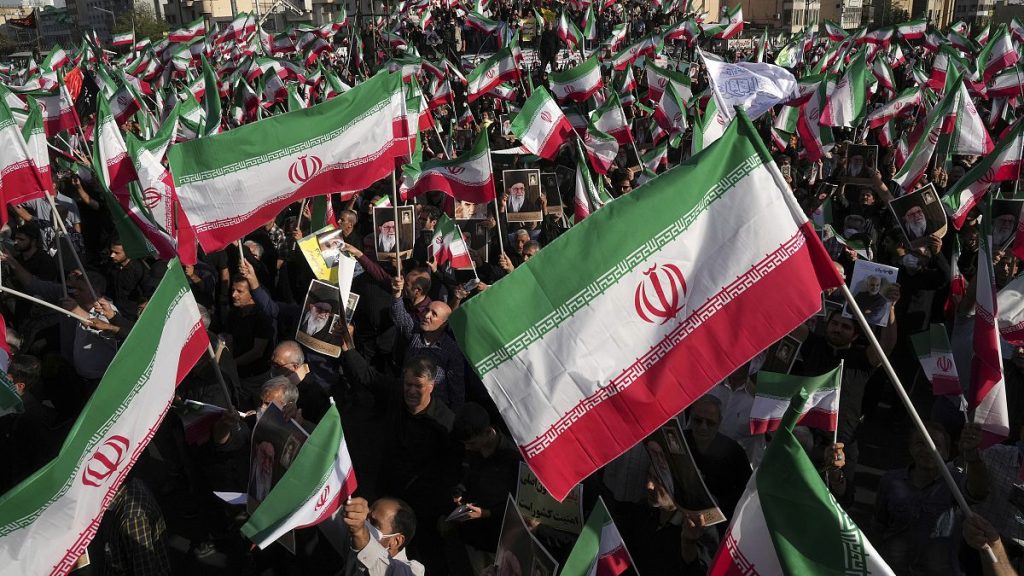Cecilia Sala, an Italian journalist working for the Il Foglio daily newspaper, was detained in Tehran, Iran, on December 19, 2023, six days after her arrival in the country on a valid journalist visa. The Iranian authorities confirmed her arrest on charges of violating the laws of the Islamic Republic, although the specific nature of these violations remains undisclosed. This detention has sparked a diplomatic row between Italy and Iran, with the Italian government demanding Sala’s immediate release and expressing concern over her treatment. Reports indicate she is being held in Evin Prison, a facility known for housing political prisoners, and that she is enduring substandard conditions, including sleeping on the floor and being denied access to personal items. The case has quickly escalated into a major political issue in Italy, even being addressed by President Sergio Mattarella in his end-of-year address.
Adding another layer of complexity to the situation is the concurrent detention of Mohammad Abedini-Najafabad, an Iranian man arrested in Italy on December 16, 2023, just three days before Sala’s arrest. Abedini-Najafabad was apprehended at Milan’s Malpensa Airport on a US warrant related to a drone attack in Jordan that killed three American troops. US prosecutors have charged him and another individual with export control violations, alleging their involvement in providing the navigation system for the drone used in the attack. While the US Justice Department has declined to comment on any connection between the two cases, Italian media has speculated that Sala’s detention is directly linked to Abedini-Najafabad’s arrest and that she is being used as a bargaining chip by the Iranian government to secure his release.
This speculation has fueled public and political pressure in Italy for Sala’s release. The Italian foreign ministry summoned Iran’s ambassador to Italy, demanding Sala’s immediate release and ensuring humane treatment, including consular access and visitation rights. Italy’s opposition Democratic Party has echoed these demands, highlighting the alarming reports of Sala’s detention conditions. The party has condemned the reported treatment as inhuman and unacceptable, further intensifying the pressure on the Italian government to resolve the situation. The case has dominated Italian headlines, reflecting the widespread public concern for Sala’s well-being and the potential political ramifications of her detention.
The suspicion that Sala is being used as leverage in the Abedini-Najafabad case raises concerns about Iran’s history of using detainees with Western ties as bargaining chips in international disputes. The precedent set by the 1979 US Embassy hostage crisis, where American diplomats were held captive for over a year, looms large in the current situation. This pattern of behavior suggests that Iran may be employing a similar tactic, leveraging Sala’s detention to pressure Italy and potentially the US to release Abedini-Najafabad. The lack of transparency from both the Iranian and US governments regarding any link between the two cases further fuels this speculation.
Italian Foreign Minister Antonio Tajani has not explicitly denied the possibility of a connection between the two detentions, adding to the growing suspicion. While Abedini-Najafabad’s Italian lawyer has requested house arrest for his client, he has declined to comment on the US charges or any potential link to Sala’s case. This silence further contributes to the uncertainty and fuels speculation about a behind-the-scenes negotiation. The ongoing legal proceedings in Italy regarding Abedini-Najafabad’s extradition to the US add yet another layer of complexity to the situation.
The convergence of these two cases creates a complex diplomatic and legal challenge for Italy and the United States. Balancing the imperative to secure the release of their citizen with the legal obligations surrounding Abedini-Najafabad’s extradition request puts both countries in a difficult position. The situation highlights the potential for individuals to become pawns in international disputes, raising ethical questions about the use of detainees as bargaining chips. The international community is watching closely, as the outcome of this case could set a precedent for future instances of hostage diplomacy. The continued silence from both the US and Iranian governments only deepens the mystery and raises concerns about the true nature of the situation.














